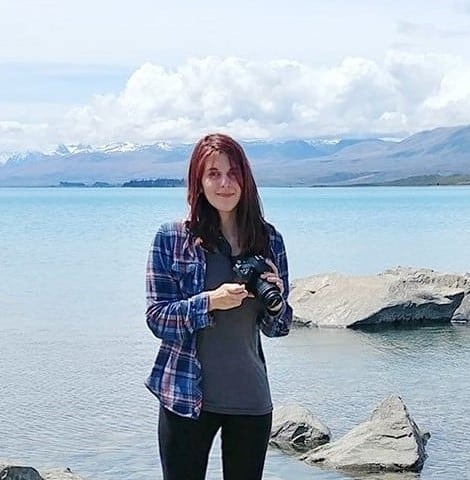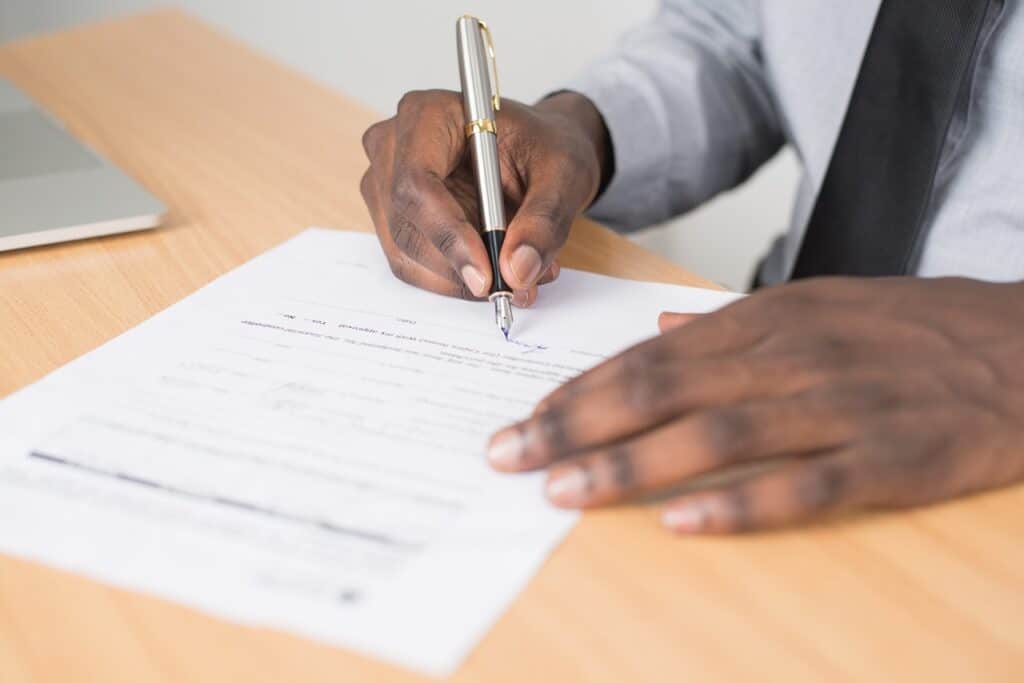When you need a certified witness for the signing of important documents like property deeds, car ownership transfers, medical directives, wills, and so forth, a notary public is your answer.
They are the impartial third party whose job is to ensure that both parties are signing the documents properly and of their own free will.
You can find notaries in a variety of places—and depending on your location, you might even be able to find a Chase Bank notary for free.
Below, we’ll cover more details about Chase Bank notary services, where else to look for a notary, and how to prepare for your visit.
Does Chase Bank Offer Notary Services?
Banks are common places to look for notaries; their employees often get certified as notaries to make it easy to handle document signings on-location.
That’s often the case at Chase Bank as well—if you’re a customer there, some locations will offer notary services to you for free.
However, be aware that Chase Bank notary services are completely up to the discretion of individual branches. That means some branches may not have a notary public at all, others might only notarize certain types of documents, others might only have a notary during certain days or times, etc.
Because the details of Chase Bank notary services can vary so much, it’s best to call around to local branches. Ask if they have a notary on-site, what hours they’re usually available, and whether they will notarize the specific type of document you need.
Recommended:
Other Places to Look for Notaries
The best way to find a local notary is to simply do a quick search for “notary near [your location].”
Here are some of the most common types of businesses that may have a notary public on staff:
- Banks (if you can’t find a Chase Bank notary, check others where you’re a customer)
- Libraries
- Colleges
- Tax or accountant offices
- Real estate offices
- Law offices
- AAA branches (free for Premier members)
Usually, you need to see a notary in person, but there may be exceptions in special circumstances (e.g. during national stay-at-home orders). Read about remote notarization services here to see whether that’s currently an option in your state. You may also be able to find a mobile notary who will come to you.
Preparing for Your Notary Visit
Whether you’ve managed to locate a free Chase Bank notary or you’re going with another service, the process will typically be the same.
You’ll need to bring:
- The document(s) you need notarized, completed but not signed
- Everyone who is supposed to sign
- Valid photo IDs for everyone, with names exactly matching the names on the document being signed
- A method of payment, if one is required
During the notary visit, the notary public will check over the document; verify the identities of everyone present; make sure they are informed about what the document means and are signing willingly; witness the signatures; and lastly officially notarizes the document with their seal and signature. The process is usually relatively quick.
Interested in becoming a notary yourself for some side income? Depending on your location, it might not be too difficult to get certified as a notary.

Kate is a writer and editor who runs her content and editorial businesses remotely while globetrotting as a digital nomad. So far, her laptop has accompanied her to New Zealand, Asia, and around the U.S. (mostly thanks to credit card points). Years of research and ghostwriting on personal finance led her to the FI community and co-founding DollarSanity. In addition to traveling and outdoor adventure, Kate is passionate about financial literacy, compound interest, and pristine grammar.


